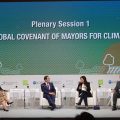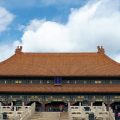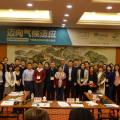Capacity Building for Chinese Cities on Climate Change Policies
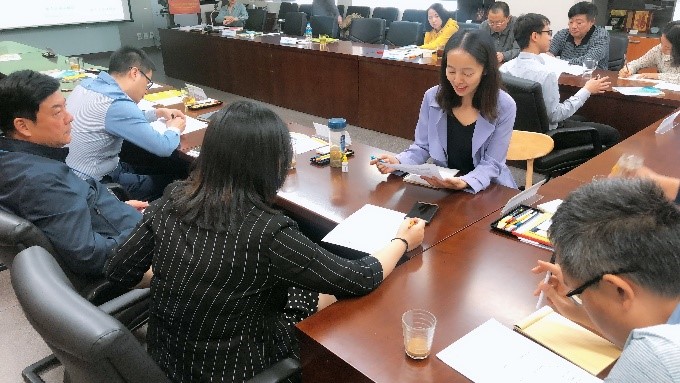
Within the theme of climate change, ICLEI East Asia and the Seoul Human Resources Development Center (SHRDC) have been co-organizing training programs for city government officials from East Asian Cities since 2016, offering opportunities for the participants to openly discuss their local policies and be inspired by the success stories of Seoul and cities in the region.
This year’s training took place on 19-23 May and was designated for Chinese Cities to enhance their local capacities on climate change policies – with a specific focus on policy measures in relation to air quality management in the East Asian region.
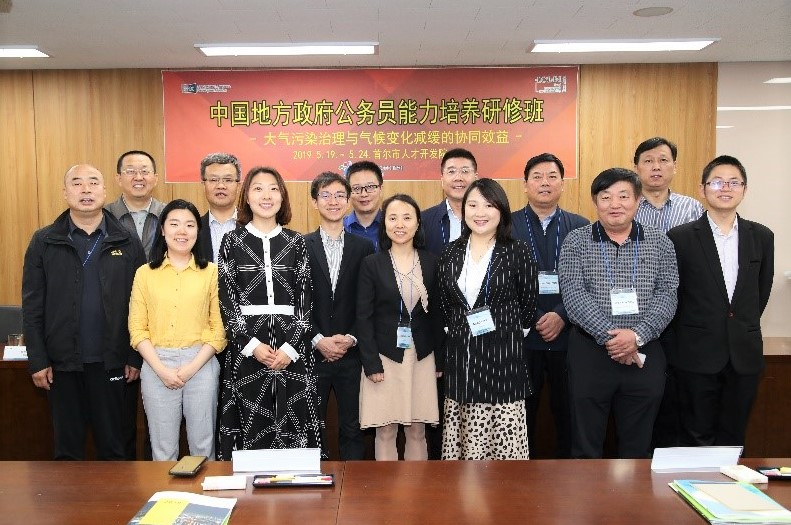
11 Chinese local government officials participated in the training co-organized by ICLEI and SHRDC
Invited and supported by the ICLEI East Asia Secretariat, 11 officials from 8 Chinese local governments of Beijing Xicheng district, Shijingshan district, Changping district, Yanqing district, Tongzhou district, the Foreign Affairs Office of Beijing Municipality, Chengdu city, Hunan province, and Yunnan province participated in the five-day training, bringing in local and regional diversity of China to the training, and allowed the participants to learn about the latest cross-country policies and programs on climate change and air pollution.
The participants were also given an opportunity to attend the annual Seoul International Forum on Air Quality Improvement 2019, which took place concurrently in the South Korean capital. In particular, Hongbin Xi, Deputy Division Head of the Atmospheric Environment Management Division of Yunnan Province, among the participants, was also invited present the prevention and control of air pollution in the province at the Forum.
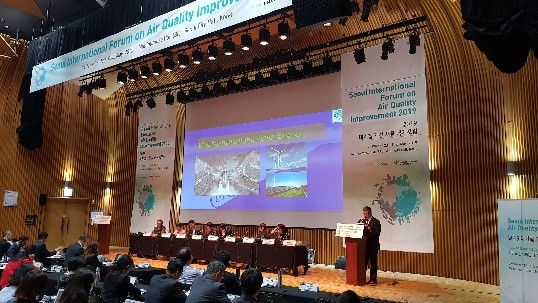
Hongbin Xi of Yunnan Province spoke at the Seoul International Forum on Air Quality Improvement 2019
The training programs with SHRDC have always consisted of well-balanced learning methods, from presentations by both participants and lecturers, site-visits, to discussions on strategies and action plans for further synergetic policy development among the participants.
For this year’s training, experts were invited to present the climate change mitigation strategy of the Seoul Metropolitan Government, with sub-topics focusing on air quality management and smart mobility. The sessions allowed the participants to be introduced to the success stories that Seoul has built during the last decade, and to learn from the lessons that could be applied to their home cities. In enhancing the participants’ understanding of how the presented climate change policies and strategies could be translated into implementation, the training program also included site visits to the Seoul Energy Dream Center and the Seoul Transport Operation and Information Service (TOPIS).
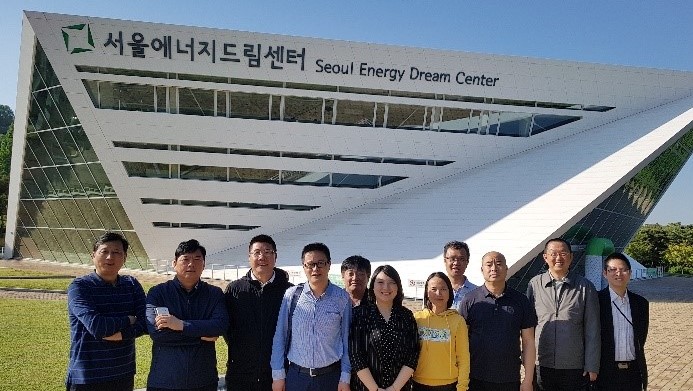
Site visit to the Seoul Energy Dream Center
While the training program was mostly designed in accordance with each participating city’s interests and needs, most participants found the session on co-benefits of co-control of climate change and air pollution presented by the guest speaker Eric Zusman of the Institute for Global Environment Strategies (IGES) particularly fruitful and valuable.
The session covered short-lived climate pollutants (SLCPS) as well as practical implementation steps for combating climate change. The participants were also provided with an opportunity to freely discuss the challenges their cities are currently facing, and examine key policies tailored to each city’s geographical features with the support of experts in relevant fields.
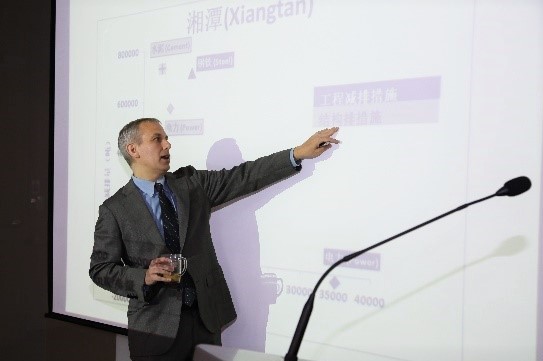
Eric Zusman of IGES
During the wrap-up session, participating city officials presented their action plans to fellow participants, combining learnings from the week-long training and their daily tasks. As a follow-up, participants will bring the action plans they have drafted back to their cities, and provide their progress and updates in the near future.


